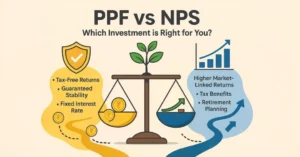When managing money, it is easy to think of finances as a purely logical process involving numbers and calculations. However, your surroundings, both physical and digital, play a significant role in influencing your financial decisions, often without you even being aware of it. From the people around you to the online world and even the spaces where you live and work, these external factors can impact your spending, saving, and investing habits. Understanding how these influences affect your choices can help you make smarter, more informed decisions and regain control over your finances.

1) Social Pressure and Its Impact on Spending Habits
Have you ever felt the urge to buy something just because a friend bought a new car or a social media influencer posted about their vacation? Social pressure can be a powerful force, compelling us to make purchases we don’t truly need in order to fit in or keep up with others. This behavior is commonly referred to as “keeping up with the Joneses.”
How to Manage Social Pressure:
Before making any purchase, ask yourself, “Do I need this, or is it a decision influenced by external factors?” Setting clear financial goals and understanding your personal values will help you stay focused on your own financial path. It’s important not to let the actions of others steer your decisions. What works for them may not align with your long-term goals or your financial situation.

2)The Digital World: How Online Ads Are Impacting Your Wallet
Online ads are everywhere, from social media platforms to websites and even in your email inbox. They target you with personalized offers, often showing you products you didn’t even know you needed, sometimes before you realize it. These ads are strategically designed to trigger impulse buying, and it’s easy to fall into this trap.
How to Beat the Digital Ads:
Take control of your digital environment by limiting exposure to online ads. Unsubscribe from unnecessary promotional emails, use ad-blockers on your browser, and avoid clicking on ads that seem too good to be true. Before making an impulse purchase, pause and ask yourself, “Do I need this, or is this a reaction to an ad?” Practicing mindfulness about your emotional responses can help you make more rational and informed financial decisions.

3) Physical Environment: How Clutter Affects Your Finances
The state of your physical environment can significantly impact your financial decisions. A cluttered home or workspace can increase stress and anxiety, which may lead to unnecessary spending as a way of coping with these emotions.
How to Create a Calmer, More Financially Clear Space:
Start by decluttering your living and work areas. A clean and organized space not only improves productivity but also helps you feel more focused and less likely to make impulsive purchases. Take a moment to assess whether your spending is a reaction to emotional clutter. Creating a peaceful environment can pave the way for clearer, more thoughtful financial decisions.

4) Marketing Tactics: How Emotional Triggers Impact Your Spending
Modern marketing is not just about selling products; it is about selling a lifestyle. Ads appeal to our emotions, convincing us that purchasing the latest gadgets, luxury items, or experiences will make us happier or more successful. These emotional triggers often lead to impulse purchases that do not align with our true needs.
How to Make Smarter, Emotionally Grounded Decisions:
When you see an ad, take a moment to pause and reflect on it. Ask yourself, “Will this purchase genuinely improve my life, or is it just an emotional reaction to an ad?” If the item aligns with your values and financial goals, go ahead and make the purchase. However, if it is simply another emotional impulse, walking away might be the more intelligent choice.

5) Financial Role Models: Influencers vs. Real-Life Experts
We all have financial role models, whether they are celebrities, social media influencers, or financial experts. While some of these role models offer valuable advice, others promote unrealistic lifestyles that can encourage poor financial habits. The curated, glamorous lives they portray often mask the real financial challenges they may face.
How to Choose the Right Role Models:
Select role models who advocate for responsible financial practices like saving, investing, and living debt-free. Instead of comparing yourself to the idealized lifestyles of influencers, focus on learning from experts who promote realistic, sustainable financial strategies. Seek guidance from individuals who prioritize long-term financial health over short-term gains.
Regaining Control Over Your Financial Journey
Your environment, both physical and digital, shapes your financial decisions in ways you may not fully recognize. The good news is that you can take control. By understanding how these external factors impact your spending and saving habits, you can make more informed financial choices that align with your values and priorities. The key is to remain mindful, set clear financial goals, and stay focused on what matters most to you, not on trying to keep up with others.
Next time you feel the urge to make an impulse purchase, pause and evaluate whether it aligns with your long-term financial objectives. Your financial journey is uniquely yours, and staying true to your goals is the key to achieving long-term success and economic freedom.







